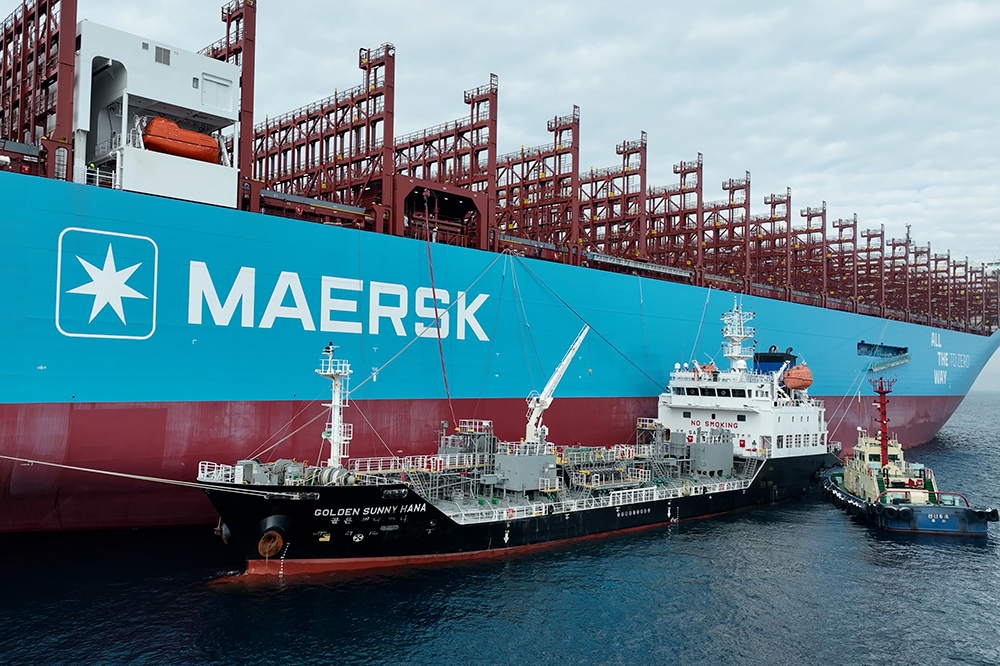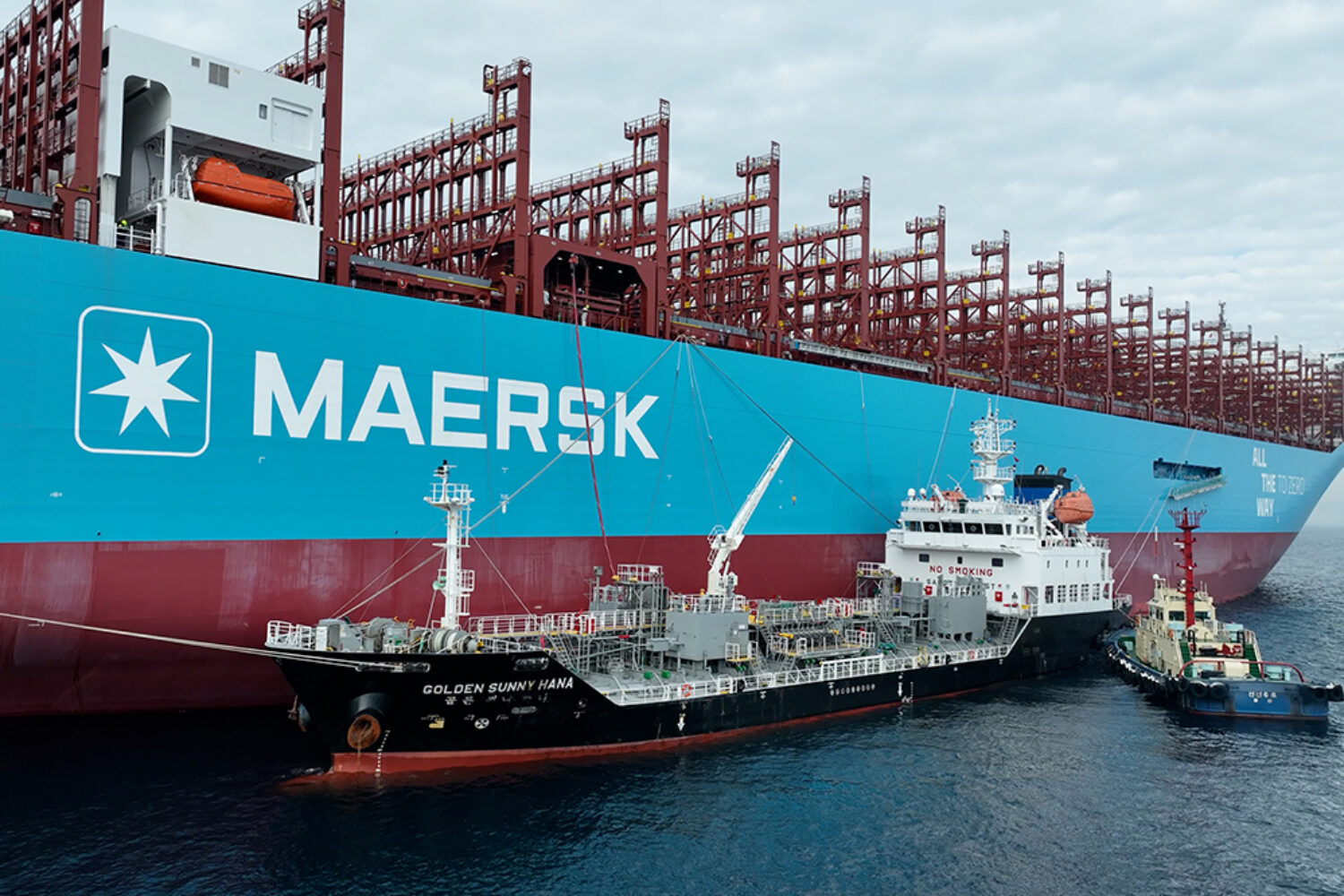The Danish shipping group A.P. Møller-Maersk continues to rely on methanol despite the recent orders for new LNG ships.
The No. 2 in global container shipping has signed a long-term contract with the manufacturer Longi Green Energy Technology for the purchase of biomethanol. “Bio- and e-methanol continue to be the most promising alternative marine fuels in this decade,” says Rabab Raafat Boulos, COO at A.P. Møller-Maersk.
The biggest challenge at the moment is the price difference between fossil fuels and their alternatives with lower greenhouse gas emissions. “We urge the member states of the IMO to create a level playing field through a functioning pricing mechanism,” says Raafat Boulos.
Maersk relies on LNG and methanol
Although the Danish shipping company recently ordered LNG newbuildings, it already has seven ships suitable for methanol in service. Together with other supply contracts, the shipping company says it has secured around 50% of its methanol requirements in 2027. Although there will be several routes and fuels on the way to net zero, methanol will continue to play a major role, says Emma Mazhari, Head of Energy Markets at A.P. Møller-Maersk.
The agreement with Longi provides for the supply of biomethanol, which is produced at a plant in Xu Chang in central China. The biomethanol will be produced from residual materials (straw and fruit tree cuttings). This fulfills Maersk’s sustainability requirements. GHG emissions are reduced by at least 65% over the entire life cycle compared to the use of fossil fuels.
The first deliveries are expected in 2026 and the Longi plant is expected to be in full production by the end of the decade.














